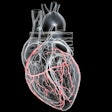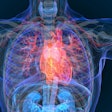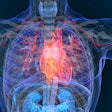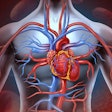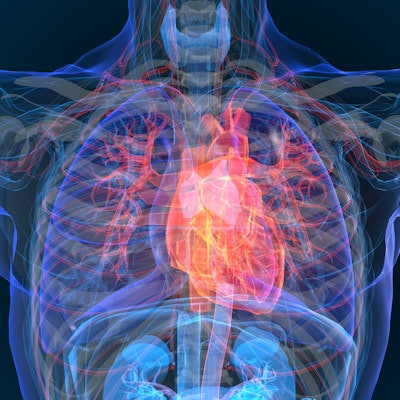
A polygenic risk score previously successful in predicting coronary artery disease can also identify those patients at highest risk for developing sudden cardiac death, according to research published recently in the Journal of the American College of Cardiology.
In the study, published by researchers at Cedars-Sinai Medical Center in Los Angeles and collaborators elsewhere, patients with coronary artery disease but without severely impaired heart function received the highest polygenic risk score, indicating a 77% increased risk for sudden cardiac death.
The investigators produced the polygenic-risk score using genome-wide genotyping in 4,698 participants of European ancestry who had coronary artery disease and a left ventricular ejection fraction of greater than 30% to 35%.
Patients in the top polygenic score decile, or group, had a 77% increased risk for sudden or arrhythmic death after accounting for left ventricular function, clinical factors, and electrocardiogram parameters. However, there was no association between the top group and non-sudden or arrhythmic death, even when limited to cardiac causes, suggesting that the score specifically predicts sudden cardiac death and not other forms of cardiac mortality in patients with coronary artery disease, the researchers wrote.
Sudden cardiac death is a major international public health issue, responsible for 15% to 20% of all deaths. Coronary artery disease, with or without myocardial infarction, represents the most prevalent cause of sudden cardiac death. In addition, a family history of sudden cardiac death itself is a strong predictor of sudden cardiac death, the researchers wrote.
The scientists explained that coronary artery disease and sudden or arrhythmic cardiac death may share a common genetic basis because coronary artery disease forms the foundation for most sudden cardiac death episodes. To classify risk for sudden cardiac death, genetic markers must identify populations at clinically actionable levels of absolute sudden death risk in whom sudden death accounts for a substantial proportion of total mortality.
"We found incorporating information from this genetic risk score improved our ability to predict sudden death beyond the contributions of other known risk markers," Dr. Roopinder Sandhu, a study author and researcher at Cedars-Sinai Medical Center, said in a statement. "The genetics were able to identify patients where sudden death was more likely to limit their life expectancy."
The top polygenic score group identified patients with clinically meaningful absolute risk, with a sudden or arrhythmic death event rate of 8% over the study period, and a group where the proportion of deaths caused by sudden cardiac death was greater, at 29%, compared with the remainder of the cohort, at 16%.
The scientists described several novel findings. They said their study demonstrated a strong association between the top polygenic score group and sudden cardiac death in the presence of established coronary artery disease, but independent of a parental history of sudden cardiac death and other clinical risk markers.
In addition, they focused on an intermediate-risk population where sudden cardiac death rates are about tenfold greater than in the general population. Thus, the relative risk elevations observed in the top group translated into clinically actionable absolute sudden death rates.








